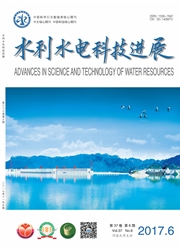

 中文摘要:
中文摘要:
为了解我国基本水问题的发展与变异状况,在总结前人研究成果的基础上,深入分析了河流系统演进与基本水问题的内在关系,总结了我国水问题的基本特点,探讨了我国水问题的发展与变异特征.指出河流系统演进与剧烈变化是产生“水多、水少、水浑和水脏冶四大水问题的渊源,四大水问题对我国物质文明和生态文明的建设危害极大.随着社会经济的不断发展和河流系统环境的变化,“水多冶问题呈现洪涝发生频率增大、河道小水大灾、河流治理不平衡、城市洪涝问题凸现等新特点;“水少冶问题变异表现为干旱缺水发生频率提高、区域与内涵扩展、持续时间加长等新情况;“水浑冶问题变异主要是指流域人类活动频繁、江河输沙量大幅减少及其影响;“水脏冶问题变异特征主要是流域复合型污染和面源污染加重、工业污染向生活污染为主转变等;需要对这些新情况及新特点加以重视.
 英文摘要:
英文摘要:
In order to understand the development and changes of fundamental water-related challenges, the inherent relationship between river system evolution and those challenges, as well as basic characteristics, development, and variation conditions, were analyzed on the basis of previous studies. It is pointed that river system evolution and drastic changes are the source of the four water-related challenges referred to in this paper as too much water, too little water, muddy water, and dirty water, which result in significant harm to material civilization and ecological civilization construction. With social progress and environmental changes in river systems comes a large amount of development and variation of fundamental water-related challenges. The too much water challenge includes greater flood frequency, large flooding disasters even with small amounts of water in rivers, imbalanced river regulation, and flooding of cities. The too little water challenge includes increasing frequency of drought and water shortage, regional and connotation expansion, lengthening of the duration, and so on. Muddy water challenges include frequent human activities in the basin, and large decreases in river sediment discharge and its influences. Dirty water problems include significant compound pollution and non-point source pollution, and the shift from mainly industrial pollution to mainly biological pollution. Attention must be given to some new conditions and new characteristics of fundamental water-related challenges.
 同期刊论文项目
同期刊论文项目
 同项目期刊论文
同项目期刊论文
 期刊信息
期刊信息
